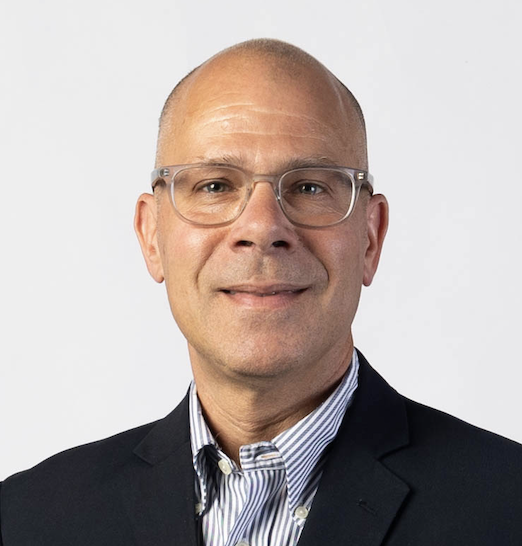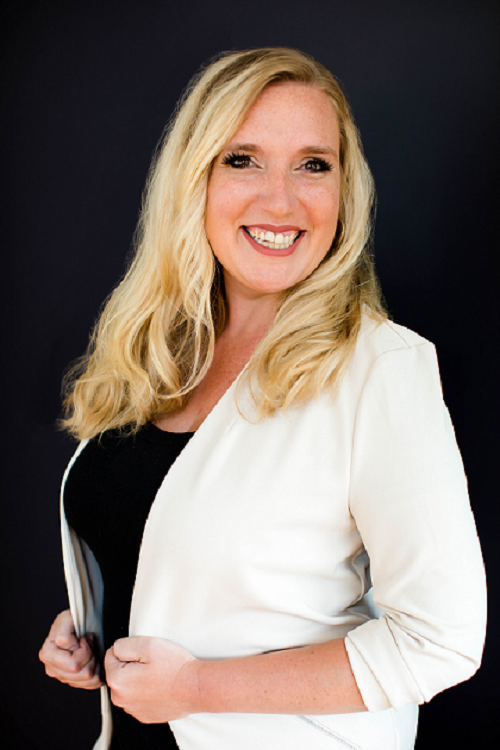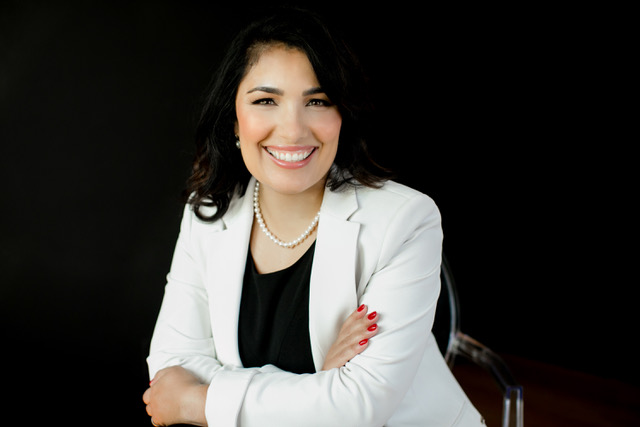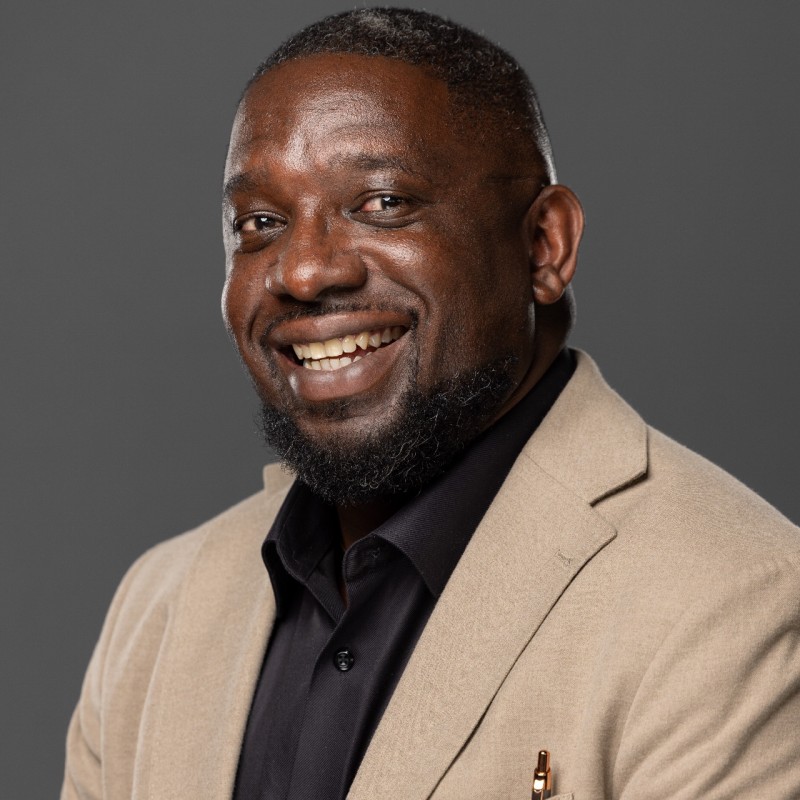Presenters
.jpeg)
CultureALL Presentations
Iowans are known for their friendliness, but sometimes simply being "nice" isn’t enough to create truly welcoming and connected communities. This session goes beyond surface-level politeness to explore the importance of genuine understanding, meaningful engagement, and adapting to changing social dynamics. A CultureALL Ambassador will share personal experiences that provide insight into different life perspectives, broadening our awareness of the diverse experiences within our state. Through discussion and reflection, we’ll explore ways to strengthen relationships, bridge differences, and create environments where everyone feels valued—not just welcomed. Let’s move beyond "nice" to build communities that are more engaged, aware, and connected.
- Recognize personal assumptions and how they shape interactions, fostering more meaningful and thoughtful engagement.
- Explore how well-intended behaviors can sometimes create unintentional barriers to deeper connections.
- Gain insight into how different backgrounds and lived experiences shape individuals' worldviews and interactions.
- Learn practical ways to strengthen relationships, build understanding, and create spaces where people feel genuinely valued.
In today’s interconnected world, silos can hinder progress, innovation, and team dynamics. This session focuses on strategies to break down these barriers, fostering open communication and seamless collaboration across departments and teams. Participants will explore the root causes of silos, such as misaligned goals, lack of transparency, or ineffective communication, and identify practical methods to address them. Through engaging activities and real-world examples, attendees will learn how to establish trust, encourage cross-functional dialogue, and create a culture where information and resources flow freely. By the end of the session, participants will be equipped with the tools to promote collaboration, enhance teamwork, and drive collective success by creating open channels that strengthen organizational unity.
- Analyze common barriers to communication and collaboration, such as misaligned goals, lack of transparency, and departmental isolation.
- Explore techniques to encourage open dialogue, build trust, and create alignment between teams to enhance workflow efficiency.
- Learn practical methods for establishing a workplace environment where information flows freely, collaboration is prioritized, and teams work together toward common goals.
What may seem like common knowledge or an obvious way of doing things to one person can be completely unfamiliar to someone from a different background. Our behaviors, values, and decision-making processes are shaped by the cultural lens through which we view the world, often leading to misinterpretations or unintentional barriers in diverse workplaces. This interactive session will help participants unpack how cultural perspectives influence communication, collaboration, and workplace dynamics.
Using a “dimensions of culture” framework, we will explore real-life workplace scenarios to better understand what different cultures prioritize and why. To further enrich the discussion, Ambassadors from two distinct cultural backgrounds will share their lived experiences, offering valuable insights into how cultural differences shape behavior. By expanding our awareness, we can move beyond assumptions, foster deeper connections, and create an environment where all perspectives are respected and valued.
- Recognize the impact of cultural differences on behaviors, values, and decision-making.
- Develop tools to communicate effectively across diverse cultural perspectives.
- Cultivate the ability to listen with intention, creating space for diverse viewpoints.
- Reflect on personal biases and assumptions to create more inclusive interactions.
- Build trust through understanding and respecting cultural diversity in professional settings.
- Join us for a dynamic 90-minute session that blends cultural storytelling with practical workplace insights. The first 45 minutes will feature a CultureALL Ambassador or Open Book who will take you on a journey of exploration of tradition, beliefs, and/or personal stories.
- In the second half of the session, CultureALL Consulting will lead a reflective dialogue connecting the experience to key themes that shape workplace culture and team health.
- This interactive session offers participants both cultural enrichment and actionable strategies for building stronger, more inclusive, and collaborative teams.
The way we perceive and interact with others is shaped by our unique experiences, background, and cultural lens. However, these perspectives can sometimes limit our ability to fully understand and connect with people whose experiences differ from our own. This session explores how our worldview influences communication, relationships, and decision-making, using the Intercultural Development Continuum (IDC) as a framework for growth. Participants will gain insight into unseen biases, learn how to identify gaps in experience, and develop strategies to navigate cultural differences more effectively. By increasing self-awareness and expanding our ability to engage across differences, we can create more inclusive and collaborative environments.
- Explore how personal experiences and perspectives shape the way we interpret and engage with others.
- Use the Intercultural Development Continuum (IDC) to assess current perspectives and identify opportunities for growth.
- Leverage insights from the Intercultural Development Inventory (IDI) to enhance communication, reduce misunderstandings, and foster more equitable interactions.
Specialized Topics

Tim Knepper
Timothy Knepper is Professor of Philosophy at Drake University, where he directs The Comparison Project, a public program in global, comparative religion and local, lived religion. He is the author of books on the future of the philosophy of religion (The Ends of Philosophy of Religion, Palgrave, 2013), the sixth-century Christian mystic Pseudo-Dionysius the Areopagite (Negating Negation, Wipf & Stock, 2014), and an introductory textbook in global-critical philosophy of religion (Philosophies of Religion, Bloomsbury, 2022). He is the editor of student-written photo-narratives about religion in Des Moines (A Spectrum of Faith, Drake Community Press, 2017) and in Beijing (Religions of Beijing, Bloomsbury, 2020), as well as The Comparison Project’s lecture and dialogue series on ineffability (Ineffability: An Exercise in Comparative Philosophy of Religion, Springer, 2017), death and dying (Death and Dying: An Exercise in Comparative Philosophy of Religion, Springer, 2019), and miracles (Miracles: An Exercise in Comparative Philosophy of Religion, Springer, 2022). The Comparison Project programming currently includes a biennial lecture and dialogue series, a monthly series of open houses at local places of worship, an annual interfaith youth camp, photo-narrative projects about local-lived religion, on-line guides to the “religions of Des Moines,” and more.
Timothy Knepper is Professor of Philosophy at Drake University, where he directs The Comparison Project, a public program in comparative religion, religious literacy, and interfaith leadership. He is the author of three books and many articles and essays as well as the editor of three academic volumes and two student-written photo-narratives about local-lived religion.
Presentation Offerings:

Emily Gillon
Emily holds a bachelor's degree in psychology from Central College with a specialization in sexual health and earned her Master's in clinical mental health counseling from Drake University in 2023. Recognized for her expertise in the national sex education community, she is a leader in innovative content creation and implementation.
With extensive classroom and training experience, Emily is dedicated to making learning accessible and engaging. She prioritizes meeting participants where they are, fostering an inclusive environment that encourages growth and open dialogue. Her training sessions are known for their welcoming atmosphere, practical takeaways, and engaging delivery.”
Presentation Offerings:

Claudia Schabel
Claudia Schabel is the Founder, President and CEO of Schabel Solutions Inc., a full-service workplace culture, leadership development and diversity, equity and inclusion consulting firm helping organizations across the U.S. normalize inclusive behaviors and build the skills, confidence and plans needed to achieve and sustain successful workforce, workplace and marketplace/community outcomes.Born and raised in Brazil, Claudia lived and worked in Japan for five years prior to moving to Iowa in 1999. Claudia’s approach as a sought-after consultant combines her international, multicultural background with over 20 years of workplace culture, diversity, equity and inclusion, and human resources practitioner experience, largely with Fortune100 and Fortune 500 companies, and many years of committed board of director leadership experience. Her expertise and background position the firm to offer customized consulting, training and coaching services in the areas of workplace culture, leadership, diversity, equity and inclusion, and cultural competency. Claudia is aCertified Virtual Facilitator™ (CVF™) by the International Institute for Facilitation as well as Intercultural Development Inventory® (IDI®) certified for conducting organization-wide workplace culture assessments, which the firm leverages when helping clients develop and implement robust and sustainable workplace culture and diversity, equity and inclusion strategies.
Presentation Offerings:

Jazlin Coley
Jazlin Coley is a public speaker, social-justice strategist, and Director of the Crew Scholars Program at Drake University, where she’s spent nearly a decade advancing equity and belonging. With a master’s in Leadership Development and a strong foundation in DEI strategy and youth empowerment, she creates spaces for real, relevant, and courageous conversations. Outside of her professional life, Jazlin is usually thrifting, tackling a creative DIY project, or deep in a binge-watch - currently obsessed with Yellowjackets and Severance. She’s a proud cat mom of two, loves volunteering on community initiatives, and finds joy in community spaces that spark meaningful conversations. Jazlin partners with CultureALL to connect her passions for justice, storytelling, and cultural expression with audiences across sectors.
Presentation Offerings:

Jack Chimbetete
Jack is the Executive Producer, President & CEO of Jack’s Shack International LLC, and Africalivenetwork.tv, as well as the President of One Voice DSM. Through his leadership and passion, he creates spaces where people can connect, celebrate, and thrive together. Jack is deeply committed to uplifting his community and brings African events and cultural unity to life across Iowa. His story of service and dedication is truly INSPIRING! Let’s celebrate Jack’s journey together at Passport To Prosperity!
Presentation Offerings:
Change is inevitable and necessary for growth. Regardless of this, many times change can be very emotional and even painful for teams and individuals. All organizations undergo change. Whether it’s a pandemic, merger, acquisition, downsizing, restructuring, or even simply new leadership, change happens. And yet when change happens, it can throw a team into chaos.
Change can significantly impact people on an emotional level and can wreak havoc on productivity. It’s important that your leaders understand the natural cycle of change and have proven tools to help employees build a resiliency mindset and bounce forward after a transformational change. With this understanding, your teams will be more prepared to handle the constant change they are faced with and choose beliefs, thoughts and emotions that serve them more effectively. In this interactive workshop, leaders will learn about what is required to lead successfully. Leaders will learn how to recognize and navigate the emotional shifts that happen during change and how to focus on well-being.
In Being Resilient in the Midst of Change, Growth and Uncertainty, leaders will walk away feeling more confident and equipped to handle the Senior leaders will learn how to recognize and navigate the emotional shifts that happen during change and how to focus on well-being. In Being Resilient in the Midst of Change, Growth and Uncertainty, senior leaders will walk away feeling more confident and equipped to handle the daily hiccups and challenges that come their way.
- Gain a clear understanding of what it means to live in a VUCA (volatile, uncertain, complex and ambiguous) world.
- Understand the impacts of transformational change.
- Identify the emotional stages of change and how to address them.
- Learn tools to build a resiliency mindset for you and your team.
- Review the six elements of well-being and why they are important.
The skill of effectively coaching employees is essential to a leader’s ability to help people develop to their fullest potential and motivate them to contribute at their highest level. Great coaches cultivate mindfulness and understand the importance of meeting the individual where they are when in a coaching relationship. This means being aware of individual nuances including personality styles, personal perspectives, intentions and career/personal goals and expectations.
This practical, interactive workshop is designed to give leaders hands-on experience using coaching techniques in their work. Leaders will learn and practice how to get into the coaching mindset and will be introduced to a toolkit of techniques for building a strong coaching relationship and engaging in effective dialogue. Leaders will understand the foundation of effective coaching and why they matter, as well as learn to master coaching conversations using a five-step coaching model.
In Building Your Leadership Coaching Skills, leaders will use a Team Coaching Assessment Grid to assess the strengths and opportunities of their team and determine what coaching conversations should be taking place with each team member.
- Understand what it means to be an impactful coach.
- Identify three key foundations of effective coaching.
- Explore personal perspectives around coaching.
- Learn how to build a strong coaching relationship.
- Practice and apply several coaching dialogue tools.
- Learn how to master the coaching conversation.
- Practice and apply several coaching dialogue tools.
- Learn how to master the coaching conversation.
- Build your Coach Action Plan
This session guides participants through a highly interactive community conversation that prioritizes vulnerability, storytelling, and cross-generational learning. Rather than a lecture, this experience invites participants to engage in small-group dialogue with intentional prompts rooted in identity, values, and lived experience. Drawing from a Black feminist pedagogy and critical race frameworks, Jazlin facilitates space where attendees build trust, unpack shared challenges, and practice listening with empathy. This session works best for groups looking to build team cohesion, reset organizational culture, or simply reconnect on a human level.
- Foster authentic dialogue across lines of difference
- Cultivate empathy through storytelling and active listening
- Increase self-awareness around identity and communication styles
- Establish group norms for courageous conversations
- Deepen understanding of belonging as a shared responsibility
Join us to delve into the rich tapestry of religious diversity in Des Moines, recognizing its significance in shaping individual identities and cultural landscapes. Utilizing the Intercultural Development Continuum, we'll investigate why many individuals tend to minimize religious differences and explore avenues to deepen our understanding of these diversities, valuing them without prejudice. Our exploration will primarily focus on the six largest religions globally—Judaism, Christianity, Islam, Hinduism, Buddhism, and Sikhism—examining how these traditions manifest within local religious communities, offering vivid examples of lived experiences.
- Gain familiarity with various religious traditions and communities in the metro area
- Explore the role of religion in shaping individual identity and fostering cultural diversity
- Transition from minimizing religious differences to accepting and adapting to them
Most of us want to avoid having difficult conversations at all costs and usually it’s based on a misconception that all conflict is bad. In reality, difficult conversations and conflict can push teams to be more innovative and take relationships to a new level of openness, honesty and understanding. Most of us don’t consciously manage difficult situations. Rather, when having to engage in a hard discussion with someone, we are used to it getting emotionally charged and people jumping to defend themselves, resulting in an argument. This is a normal human reaction called “the fight or flight” syndrome. But there is a better way!
The key to handling these difficult conversations is to slow down, assess the situation from a non-judgmental point of view and decide what approach to take given the situation. This type of conscious behavior can be learned and is our focus today. If handled appropriately, working through difficult conversations can create strong bonds between team members and pave the way for improved communication. However, if handled inappropriately, these tough conversations can quickly destroy workplace relationships and cause team members to become disgruntled and dissatisfied with their jobs. In this workshop, participants will explore “elephants” in the room and benefits to addressing these sensitive topics before they grow out of control. They will identify symptoms and sources of the issue, including exploring their natural approach to handling difficult conversations to determine if there is a better way.
- To identify symptoms that difficulties exist and the root cause
- To learn various approaches in response to difficult situations
- To identify strategies to move from conflict to cooperation
- To learn how to invite and offer constructive feedback when handling a difficult conversation
- To use helpful language to ask for what you need
Embark on a journey of understanding and inclusivity as we focus on LGBTQ+ terminology and best practices. In this session, we extend an empathetic hand to those eager to improve but unsure of where to begin. We will foster knowledge, comfort, and literacy in LGBTQ+ terms and best practices. We'll dedicate time to exploring the data that underscores the significance of continuously enhancing our inclusion efforts. Participants will be equipped with practical strategies and tools applicable to individuals of all ages. You will be empowered to advocate for the LGBTQ+ community and have ongoing resources for continued learning and support. Let's unite in uplifting and celebrating diversity and creating a more inclusive and affirming environment for everyone.
- Establish literacy in LGBTQ+ terminology and social norms for fostering affirmation and inclusion in professional settings.
- Provide resources for individuals outside theLGBTQ+ community to facilitate ongoing learning and support.
- Offer support and uplift members of the LGBTQ+community through accessible resources and advocacy.
This session tackles unconscious bias head-on, not with shame, but with strategy. Jazlin takes participants on a journey from awareness to action, weaving in real-world scenarios, interactive reflection, and vulnerability to unpack how bias shows up in policies, behaviors, and environments. Using her framework of “reduction of harm vs. avoidance of harm,” participants walk away not just with new language, but new practices that make inclusion real. Perfect for teams ready to go deeper than surface-level DEI.
- Define and recognize forms of unconscious bias
- Understand the connection between bias, harm, and belonging
- Reflect on personal and institutional habits that sustain exclusion
- Practice inclusive language and decision-making
- Learn strategies for allyship and accountability


